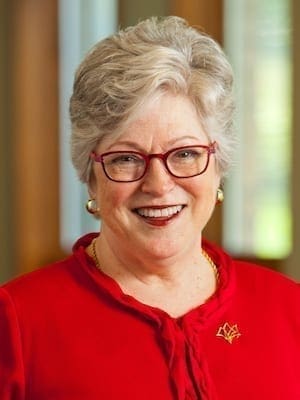Preachers often avoid lectionary texts from Judges as they are not sure what to do with stories of violence (Samson), testing God (Gideon) and an ill-conceived vow to the Lord (Jephthah), to name only a few.
It was a precarious time for the young nation as “there was no king in Israel; all the people did what was right in their own eyes” (Judges 24:25). Then there is the crucial role of women, which challenges the regnant notions of authority – then, and for many, now.
Deborah occupies a significant leadership role in the early years of settlement by Israel in the land of promise. Called both prophetess and judge, she is also a military strategist.
She summons the head of the Israelite army, Barak, and instructs him how to defeat the warriors of King Jabin of Canaan (Judges 4:6-7). Unwilling to go without her, Barak sees her as the sign of the accompanying power of God.
Deborah warns him that he will not receive glory for military exploits; rather, “the Lord will sell Sisera into the hand of a woman” (Judges 4:9b). The general of Jabin’s army, Sisera, who had fled from the scene of battle, meets his grisly end at the hand of Jael and her tent peg.
Two women engineer victory for the Israelites as they continue to take possession of their new home.
Complementarian theology maintains that women and men are essentially different.
According to the Council on Biblical Manhood and Womanhood, complementarianism affirms that men and women are equal in the image of God, but maintain complementary differences in role and function.
In the home, men lovingly are to lead their wives and family as women intelligently are to submit to the leadership of their husbands. In the church, while men and women share equally in the blessings of salvation, some governing and teaching roles are restricted to men.
The patriarchalism that undergirds this position, dependent upon cherry-picking favorite texts that support its bias, leads to a less than subtle denigration of women.
It also presupposes that families are able to sustain financially the preferred structure of women as homemakers and child-raisers.
More egregious theologically is the notion that this kind of hierarchy is grounded in Trinitarian theology, with an assumed eternal subordination of the Son and further down, the Spirit.
The view ignores the “perichoresis” of the immanent Trinity and inscribes literal maleness into the life of God beyond the incarnation.
Where does a figure like Deborah fit into this perspective? She doesn’t; rather, she upends it with her leadership of God’s people.
Evidently, she was the most qualified person and was responsive to the call of God. Had she waited for a male leader to show up, the battle would likely have been lost.
There is too much godly work to be done to slot people into the strictures of complementarian theology. Gender does not determine calling and gifts, thanks be to God.
Molly T. Marshall is president of Central Baptist Theological Seminary (CBTS) in Shawnee, Kansas. A version of this column first appeared on her blog, Trinitarian Soundings, and is used with permission. You can follow CBTS on Twitter @CBTSKansas.

